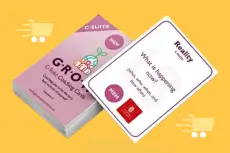What Impact Will COVID-19 Spending Have On Our Future Taxes?
The COVID-19 pandemic presented the economy with one of the biggest shocks in several centuries. As a result of life-saving lockdowns around the world, many economies have staggered to a halt and entered a recession. To keep workers and businesses afloat throughout this unprecedented situation, the UK Government lends financial support. This support includes initiatives such as the Coronavirus Job Retention Scheme (more commonly known as the furlough scheme). There is also the Self Employment Income Support Scheme Grant (SEISS). Mortgage holidays and eviction bans are in place. Stimulus measures such as the ‘Eat Out to Help Out’ initiative were are also in place.
These necessary provisions come at a significant cost, of course. According to recent statistics, the first six months of the coronavirus crisis cost the public purse a staggering £210bn. This figure is likely to rise further as the state continues to take preventative measures against the disease. This, in an effort to save lives and keep vulnerable citizens safe.
What Is the Plan?
So, how does the government plan to pay back the gaping deficit that they have left in the wake of COVID-19? When the disease starts to retreat and we move towards normality, what will the impact be financially for citizens and corporations alike?
Ultimately, the government faces tough decisions about whether to increase borrowing, cut spending, or raise taxes. It is likely that it will opt for a combination of all three. This depends on just how much debt the state has when the crisis ends. Some economists claim that the crisis can be overcome through borrowing alone. However, this is a source of great contention. It is very likely that taxes will rise across several areas of the economy.
Any future tax changes will likely impact everyone. However, it is especially important that business leaders are aware of the potential consequences. Therefore, we’ve put together a helpful guide to potential upcoming legislative changes. Remember that governmental decisions are yet to be made. These tips and pointers should be treated as speculative rather than set in stone.
How Personal Taxes May Be Affected
There are several personal taxes which may change, potentially having a significant impact on the pockets of individuals throughout the UK. These include:

Income Tax
Income tax is a politically volatile source of income for the government. Some politicians are keen to make policy alterations elsewhere to keep voters onside. Any rise in income tax will affect the personal finances of citizens and leave them with less disposable income. This is never a desirable prospect.
Income tax rates have remained relatively consistent in recent years. Tax rates remained stagnant but the seriousness of COVID-19 crisis may force the government to make alterations to these charges.
The extent of such tax hikes remains to be seen. However, it is fairly unlikely that a reduction in allowance thresholds will happen. This could detrimentally affect those at the lower end of the income spectrum. Instead, the government may choose to freeze thresholds, with those earning higher incomes potentially facing tax increases.
Capital Gains Tax (CGT)
CGT is a very changeable tax and is moving with basic rates of income tax and higher rates. It is possible that CGT rates will rise as high as 45%. The government will attempt everything it can to cover the cost of the crisis. Although the rise may not be quite so severe, citizens should prepare for an increase in CGT. This is particularly important for those looking to sell or transfer their assets in the near future.
Pensions
Pensions always present a tricky political issue for the UK Government, who are keen to encourage people to save for retirement. It is possible that tax revenues could be increased by the reduction of income tax relief on pension contributions. However, this could hamper the vast majority of people from saving for the future. It may prove too unpopular to implement. It may be that only the highest rate taxpayers will see their pension plans affected.
Inheritance Tax
We who remember the political furore surrounding the recession of 2008 know that inheritance tax is a very volatile issue. The threshold for inheritance tax was frozen in 2008 and has not seen an increase since, remaining at £325,000. It is very unlikely that this will see any change in the coming months or years. Moreover, the £3,000 annual gift allowance is also likely to remain stagnant for the foreseeable future.
Many people are unhappy about the government’s unwillingness to change the rules as the tax allowance is going down in real terms over the past decade or so. However, thanks to the urgency of COVID-19 and the country’s need to recover financially, the continued stagnancy of gifts and thresholds are unlikely to prove much of an issue for the government.
One area which may face some controversial new measures, however, is the inheritance tax relief currently granted for owners of farmland and trading businesses. At the moment, they have relief rates of up to 100% on the agricultural value of land and the value of their businesses. It is possible that relief may be removed or at least lowered in the future.
Stamp Duty Land Tax (SDLT)
SDLT gradually increased in recent years thanks to the introduction of a new charge affecting second homes. The logic behind it is to reduce the appeal of buying second properties, to deter buy-to-let arrangements. This left the market open for first-time buyers to get on the property market.
It is possible that the government will try to stimulate the housing market by reducing the rate of SDLT on second homes. This would inevitably curtail tax revenues and could be seen as tax relief for the wealthy. This is something that may prove politically unwise.
Value-Added Tax (VAT)
It is possible that VAT will face some alterations in order to boost tax revenues. However, it is less likely to face alterations compared to other forms of tax because price hikes on goods and services could affect the functioning of the economy.

How Corporations May Be Affected
According to a recent report by The Sunday Times, corporation tax could see a rise from 19%. This is one of the lowest rates amongst leading economies and may go up to 24%. This could generate significant revenues to address the deficit but could also prove detrimental to recovery. It would also likely affect small and medium-sized enterprises, particularly those that are not well-equipped to handle financial hardship.
Will We See New Types of Taxes?
Some economists and tax experts speculate that we may see inventive new forms of tax to overcome the coronavirus crisis. Perhaps the most widely talked about option is a windfall tax. Sectors who have experienced a decrease in sales include the hospitality and travel industries. Those positively affected companies involved in video conferencing, pharmaceuticals, logistics and some e-commerce sectors. Taxing these businesses will help to even out the economy. It will help address the deficit in a way that is unlikely to be politically toxic.
Wealth tax is another option and can come in the form of a one-off instalment or on a monthly basis. This would probably bring about some political and practical issues.
What Financial Advisers and Wealth Professionals Can Do to Help Clients
For now, financial advisers and accountants must help their individual and corporate clients survive uncertain financial territory. One way to do this is by getting on board with specific software that can help businesses navigate and comply with HMRC legislation. BTC Software’s Making Tax Digital is an excellent example of this.
There is hope that the economy will start to regain its former momentum, if and when there is approval for a COVID-19 vaccine. Whatever happens, we can be sure that the government will have a hefty job on its hand when it comes to making up the deficit. In all likelihood, we will see a combination of new and altered taxes and an innovative stimulus plan.




